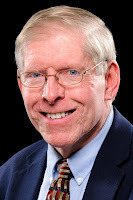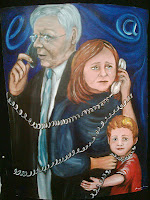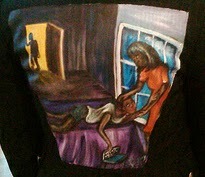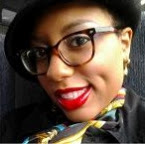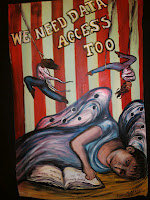Partnership for Patients Summit
Session 2
11:00-11:45: Patient Speakers and SpeakerLink Panel:
Dave DeBronkart
Dave DeBronkart
“e-Patient Dave” deBronkart was diagnosed in January 2007 with Stage IV, Grade 4 renal cell carcinoma (kidney cancer) at a very late stage. His median survival time at diagnosis was just 24 weeks; with tumors in both lungs, several bones, and muscle tissue, his prognosis was “grim,” as one website said.
He received great treatment at Boston’s Beth Israel Deaconess Medical Center. His last treatment was July 23, 2007, and by September it was clear he’d beaten the disease. His remaining lesions have continued to shrink.
An accomplished speaker and writer in his professional life before his illness, today Dave is
actively engaged in opening health care information directly to patients on an unprecedented level, thus creating a new dynamic in how information is delivered, accessed and used by the patient.
actively engaged in opening health care information directly to patients on an unprecedented level, thus creating a new dynamic in how information is delivered, accessed and used by the patient.
Tiffany Peterson is currently a lupus ePatient advocate sharing her experience on life while living with lupus at TiffanyAndLupus and is the founder/community manager of Friends Against Lupus; an informative community of lupus patients, caregivers, and supporters.
She has been an ambassador for the S.L.E. Lupus Foundation for about two years and is currently Chair of their Awareness Committee.
Kait B Roe
Is a fierce patient advocate for patient centered care as found in Mental Health parity and integration into physical care. She has a specialty in LGBTQQI disparity and cultural competence. Kait is known best for her constant reminders that if it is CALLED patient centered, there BETTER be a patient sitting at the table- every table – yes, that one too! She is also known for her love of bacon…
**** Please remember these are my PERSONAL notes from this session and done during the session so excuse the typos and remember these may be my thoughts and impressions! AND This is a PANEL with some Power Houses so it will be organized by How and when they speak…
- e-Patinent Dave kicks off – makes my living making speeches now so this is how I do slides & speeches (slides will be posted on epatientdave.com) – Dave is frequently a Key Note speaker
- Marketing tip: Pick a Brand and be consistent – you need a name that is “easy to remember” !! stick with it and use it Everywhere (spelled consistently ): 1. easy to remember 2. easy to spell (spell it consistently 3. has to fit in Twitter
- LAW 1: It’s NOT about you (no matter how amazing your personal story is) – nobody attends a meeting with an interest in hearing about your problems – people do attend a meeting to Learn Something to come away seeing things differently – to accomplish… (missed the rest)
- Corollary: 2/3 of speaking is listening: ask your client why they wanted YOU to speak to their group including what’s up in their community? what issues are in the air? where are they at their journey? do they need an initial awakening? – ASK “what would you love to see as an outcome after this session? What would be a real home run?
- Law 2: it is YOUR responsibility to earn and hold their attention – never ever stagnate or dwell – should have a flow – EARN and HOLD their attention: start somewhere interesting and lead somewhere interesting, step by step (doesn’t have to be linear).. transitions are vitally important
- Corollary: Never Death BY Power Point – one slide per minute
- Law 3: design the start and end – the opening is where they decide if you’re full of hot air, boring, likable, etc. – respect what you’re there to accomplish with them – be yourself; be genuine – let them know how you got there – If there is an emotional climax to your story, leave it to the end “don’t blow your wad early” (yes… the slide SAYS that!)
- Law 4: Information alone doesn’t change behavior –
- Corollary: Don’t just tell them – give them something to do
- Kait B Rowe – Roundtables and consulting gigs
- biggest tip: what can I share that would be relevant to where the audience “IS”
- speaker for LGBTQ issues
- Get up and “read the room”
- Instead of doing the “speech” Kait “read the room” and, instead, talked about what patient engagement LOOKS like
- Lots of research about the audience including where they are and what they need to learn
- Different styles of the speakers
- Speakerlink.org – resource for speakers – a landing page
- Tiffany Peterson – Panel speaker
- patient voice speaker
- diagnosed with Lupus just over two years ago – not a lot of help from her doctor’s office – did online research and found lots of patient voices
- “if you find a void in the world and you aren’t trying to fix that then you are part of the problem”
- started blogging so that others wouldn’t feel so alone.. which was how she was feeling when she was diagnosed.
- started “Friends against Lupus” on Facebook just for her friends & family – an open group that now stands at close to 10,000 friends
- “You need to be You” – “Your Passion is contagious but Lupus is Not”
- Questions: (Regina Holliday)
- Question: How did you move out of just the Lupus community?
- Tiffany: saw that there were topics that crossed different communities – sat in on other TweetChats and heard very similar things – why aren’t we working together because we share the same issues
- Kait: there needed to be a voice in the health care system
- Importance of SpeakerLink (Dav
e)- The importance of getting the patient voice into health care – find that there are lots of discussions happening but they are doing it WITHOUT the patients in the room
- Partnership FOR patients v. Partnerships WITH Patients – a shift in thought process
- Many conferences simply don’t pay patients to speak and some conferences expect the patients to speak for free but then charge gobs for attendees to hear those speakers
- Regina: the idea of the Speaker bureau came from an unconference last year
- Helps speakers to have that online presence
- gives Power to health advocate / patient advocate speakers to be Known
- “Patients Speak”
- when you go to a conference .. Don’t just SPEAK and LEAVE – go to every single session and become known
- there are smaller conferences that don’t have the BIG budgets so there is space for lots of speakers
- Is there a workshop in October: PCORY
- Question: How did you move out of just the Lupus community?
- Audience Questions
- where do you find those meetings – partnerships with patients posts upcoming meetings – sometimes not a lot of notice
- Dave blogs for ePatientsNet and on his website they list upcoming public meetings – get connected on social media
- what about state / regional levels to get involved – how do you find out about these meetings?
- Kait: found ins through patient advocacy groups – if you go to state/local government through other methods then you can get those conversations started – Go to a meeting and asking the pertinent question: “…she has all the right questions… does she have the right answers?” They started to Asking her to speak. Easier locally … start small and grow from there
- Love SpeakerLInk to link in your power points, etc. a great site & resource
- Kait: get recommendations from speakers who are know
- Dave: don’t expect to be paid until you prove that you are worth something – Dave is starting to publicize the critiques of HIS speeches
- Easiest to start as a panelist … getting your feet wet
- Kait: don’t be afraid to do something that you aren’t familiar with, i.e. she was asked to do a webinar and didn’t know but stepped out of your comfort zone
- Idea: Have speakerLink references
- If you are willing to take a trip to your local state capital and be an education team – there are people there who want to be Educated by lobbyists – try walking in and asking to speak to a member of congress
- where do you find those meetings – partnerships with patients posts upcoming meetings – sometimes not a lot of notice

